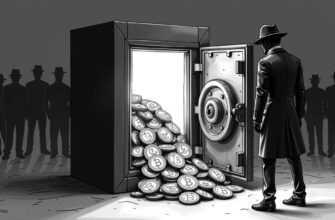I’ve been diving deep into the crypto scene in South Korea, and let me tell you, it’s a mixed bag. On one hand, you’ve got this super enthusiastic market filled with traders and investors. On the other hand, there’s a mountain of regulations that can make your head spin. As we gear up for 2024, I figured it was time to break down what’s going on with these upcoming crypto regulations and how they might affect us.
The Current State of Affairs
First off, let’s talk about the current setup. The Korean Financial Services Commission (FSC) and the Financial Intelligence Unit (FIU) are basically crypto parents making sure their kids don’t get into too much trouble. One of their big rules? No more anonymous transactions! Everyone has to use real names when trading crypto. This is done through a real-name verification system that links your trading account to your bank account—both must be with the same institution.
And if you think that’s invasive, wait till you hear about the AML protocols! All exchanges (or as they call them, Virtual Asset Service Providers – VASPs) have to do some serious KYC (Know Your Customer) work. They’re required to document where your funds are coming from and report anything suspicious faster than you can say “Satoshi.”
What’s Coming Down the Pipeline?
Now here’s where it gets interesting—and a bit concerning if you’re into privacy coins or just like keeping things low-key. Starting in mid-2025, there’s gonna be a new set of cross-border transaction rules that’ll make things even tighter. Basically, if you’re sending more than $10k out of Korea, good luck being anonymous because VASPs will have to report that along with any transaction over $50k.
These new regulations are supposedly in line with global standards but honestly feel like an overreach for those of us who value our privacy.
The Big Acts: VAUPA and DABA
Two major pieces of legislation are also on the horizon: The Act on the Protection of Virtual Asset Users (VAUPA), which is already partially in effect as of July 2024, and the Digital Asset Basic Act (DABA), set to roll out in June 2024.
VAUPA aims to protect users but also imposes hefty responsibilities on exchanges—like ensuring they don’t lose your deposits! Meanwhile, DABA is all about balancing innovation with investor protection and includes some pretty stringent compliance measures.
Oh, and let’s not forget taxes! If you’re holding crypto as an investment or using it for payments, be prepared because Korea is looking at capital gains tax and VAT respectively.
Summary: A Double-Edged Sword?
So there you have it—a snapshot of South Korea’s rapidly evolving crypto landscape. It feels like a double-edged sword; on one side there’s stability and protection from scams (which we need!), but on the other side there’s this looming cloud of surveillance that’s kinda dystopian if you think about it.
For those planning to trade or invest here in 2024 and beyond, staying compliant seems like the only way forward. But man… does it kill my vibe about getting into crypto in Korea.








